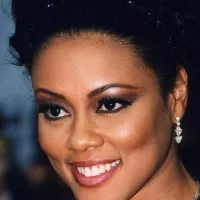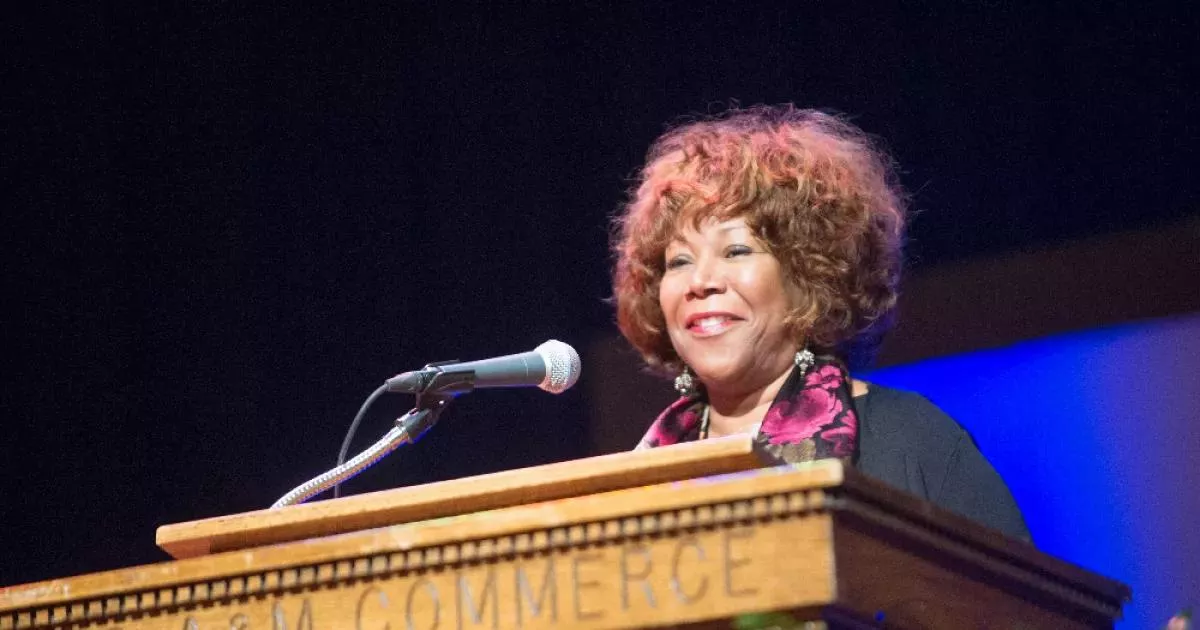Ruby Bridges is an American civil rights activist notable for being the first African American child to desegregate the all-white William Frantz Elementary School in Louisiana on November 14, 1960. At just six years old, she faced significant racism and hardship as she integrated the school during the New Orleans school desegregation crisis. Her bravery and resilience became a symbol of the civil rights movement. Her experiences were captured in Norman Rockwell's painting, "The Problem We All Live With", solidifying her place in American history.
September 8, 1954: Ruby Bridges Born
On September 8, 1954, Ruby Nell Bridges Hall was born. She later became a civil rights activist known for being the first African American child to attend an all-white elementary school in Louisiana.
1954: Brown v. Board of Education
In 1954, the year of Ruby Bridges's birth, the Brown v. Board of Education ruling declared segregated public schools unconstitutional. This permitted Black students to attend previously all-white schools.
1957: Federal Troops in Little Rock
In 1957, federal troops were ordered to Little Rock, Arkansas, to escort the Little Rock Nine students. This was to combat violence following the Brown v. Board of Education decision.
November 14, 1960: Desegregation Crisis
On November 14, 1960, Ruby Bridges was the first African American child to attend the formerly all-white William Frantz Elementary School in Louisiana, marking a significant moment during the New Orleans school desegregation crisis. She was escorted by federal marshals.
1960: Integration of New Orleans School System
In 1960, Ruby Bridges' parents volunteered her to participate in the integration of the New Orleans school system, responding to a request from the NAACP. She was six years old at the time.
1960: Integration of William Frantz Elementary School
In early 1960, Ruby Bridges passed a test that determined whether she could attend the all-white William Frantz Elementary School. Along with three other girls, they were escorted to school by federal marshals during the first day.
January 14, 1964: Publication of "The Problem We All Live With"
On January 14, 1964, Norman Rockwell's painting, "The Problem We All Live With," which commemorated Judge J. Skelly Wright's court order for the first day of integrated schools in New Orleans on November 14, 1960, was published in Look magazine.
1964: The Problem We All Live With
In 1964, Norman Rockwell created the painting "The Problem We All Live With" featuring Ruby Bridges. The painting portrayed her experience integrating into William Frantz Elementary School. The painting was published in Look magazine on January 14, 1964.
September 1995: Honorary Degrees from Connecticut College
In September 1995, Ruby Bridges and Robert Coles were awarded honorary degrees from Connecticut College and appeared together in public for the first time to accept the awards.
1995: The Story of Ruby Bridges
In 1995, Robert Coles wrote a children's book titled "The Story of Ruby Bridges" to share Ruby's story. The royalties from the sale of the book were donated to the Ruby Bridges Foundation.
1998: Ruby Bridges TV Movie
In 1998, the made-for-TV movie "Ruby Bridges" portrayed her childhood struggle at William Frantz Elementary School. The film featured actors such as Chaz Monet, Lela Rochon, Michael Beach, Penelope Ann Miller and Kevin Pollak.
1999: Formation of Ruby Bridges Foundation
In 1999, Ruby Bridges formed the Ruby Bridges Foundation to promote tolerance, respect, and appreciation of all differences.
August 10, 2000: Honorary Deputy U.S. Marshal
On August 10, 2000, the 40 year anniversary of her walk into William Frantz Elementary School, Deputy Attorney General Eric Holder made Ruby Bridges an Honorary Deputy U.S. Marshal.
January 8, 2001: Presidential Citizens Medal
On January 8, 2001, Ruby Bridges was awarded the Presidential Citizens Medal by President Bill Clinton.
2004: Ruby Bridges Hall's Life in New Orleans
As of 2004, Ruby Bridges Hall was living in New Orleans with her husband, Malcolm Hall, and their four sons. She was the chair of the Ruby Bridges Foundation.
2005: Hurricane Katrina
In 2005, Ruby Bridges lost her home in Eastern New Orleans due to the catastrophic flooding from Hurricane Katrina. The hurricane also greatly damaged William Frantz Elementary School, in which Ruby played a significant role in fighting for the school to remain open.
November 2006: Hero Against Racism
In November 2006, Ruby Bridges was honored as a "Hero Against Racism" at the 12th annual Anti-Defamation League "Concert Against Hate" with the National Symphony Orchestra, held at the Kennedy Center in Washington, DC.
November 2007: Children's Museum Exhibit
In November 2007, the Children's Museum of Indianapolis unveiled a new permanent exhibit documenting Ruby Bridges's life, along with the lives of Anne Frank and Ryan White. The exhibit, called "The Power of Children: Making a Difference", featured a recreation of Ruby's first grade classroom.
2010: 50th Year Reunion
In 2010, Ruby Bridges had a 50th year reunion at William Frantz Elementary with Pam Foreman Testroet, who was the first white child to break the boycott that ensued from Bridges's attendance at that school.
July 15, 2011: Meeting with President Obama
On July 15, 2011, Ruby Bridges met with President Barack Obama at the White House, where they viewed the Norman Rockwell painting of her. Obama acknowledged the impact of her actions on his own path.
October 2011: Rockwell Painting Displayed
The Rockwell painting of Ruby Bridges was displayed in the West Wing of the White House, just outside the Oval Office, from June through October 2011.
May 19, 2012: Honorary Degree from Tulane University
On May 19, 2012, Ruby Bridges received an honorary degree from Tulane University at the annual graduation ceremony at the Superdome.
February 4, 2016: John Steinbeck Award
On February 4, 2016, Ruby Bridges was the recipient of the John Steinbeck Award at San Jose State University. The award is given to those who capture "Steinbeck’s empathy, commitment to democratic values, and belief in the dignity of people who by circumstance are pushed to the fringes."
November 9, 2023: Robert Coles Call of Service Award
On November 9, 2023, Ruby Bridges was awarded the Robert Coles Call of Service Award by the Phillips Brooks House Association at Harvard University, and gave the corresponding lecture at Memorial Church.
March 5, 2024: Induction into National Women's Hall of Fame
On March 5, 2024, Ruby Bridges was inducted into the National Women's Hall of Fame. The induction ceremony honored her alongside Serena Williams, highlighting her contributions to civil rights and education.
Mentioned in this timeline

Bill Clinton the nd U S President - served as...

Serena Williams is a highly accomplished American former professional tennis...

Barack Obama the th U S President - was the...

The White House located at Pennsylvania Avenue NW in Washington...
Connecticut is a state in the New England region of...

Lela Rochon Fuqua is an American actress known for her...
Trending

10 months ago Milly Alcock's Supergirl Suit Unveiled; Jason Momoa's Lobo Possibly Spotted on Set

3 months ago Jessica Pegula at WTA Finals: Match against Paolini, Sabalenka faces Gauff.

3 months ago Angelina Jolie stuns with back tattoos and patent booties at premiere.

Shaun White is a highly accomplished American former professional snowboarder and skateboarder A five-time Olympian he secured three Olympic gold...

3 months ago Lindsey Vonn's record-breaking career, teaching older athletes, and Milan Olympics ad.
The Winter Olympic Games a major international multi-sport event held every four years features sports practiced on snow and ice...
Popular

Thomas Douglas Homan is an American law enforcement officer who...

Martin Luther King Jr was a pivotal leader in the...

XXXTentacion born Jahseh Dwayne Ricardo Onfroy was a controversial yet...

Instagram is a photo and video-sharing social networking service owned...

William Franklin Graham III commonly known as Franklin Graham is...

Jupiter is the fifth and largest planet from the Sun...
